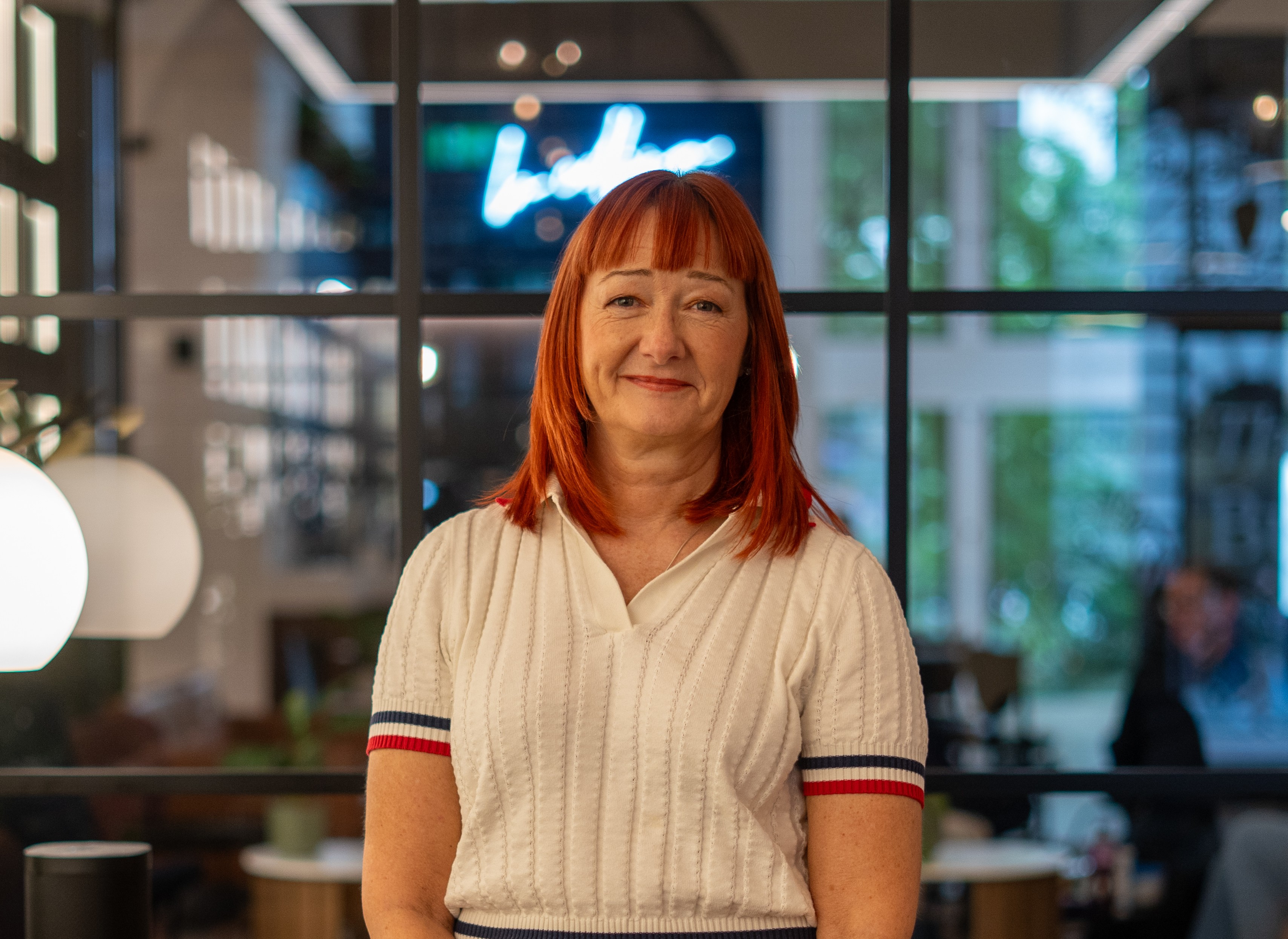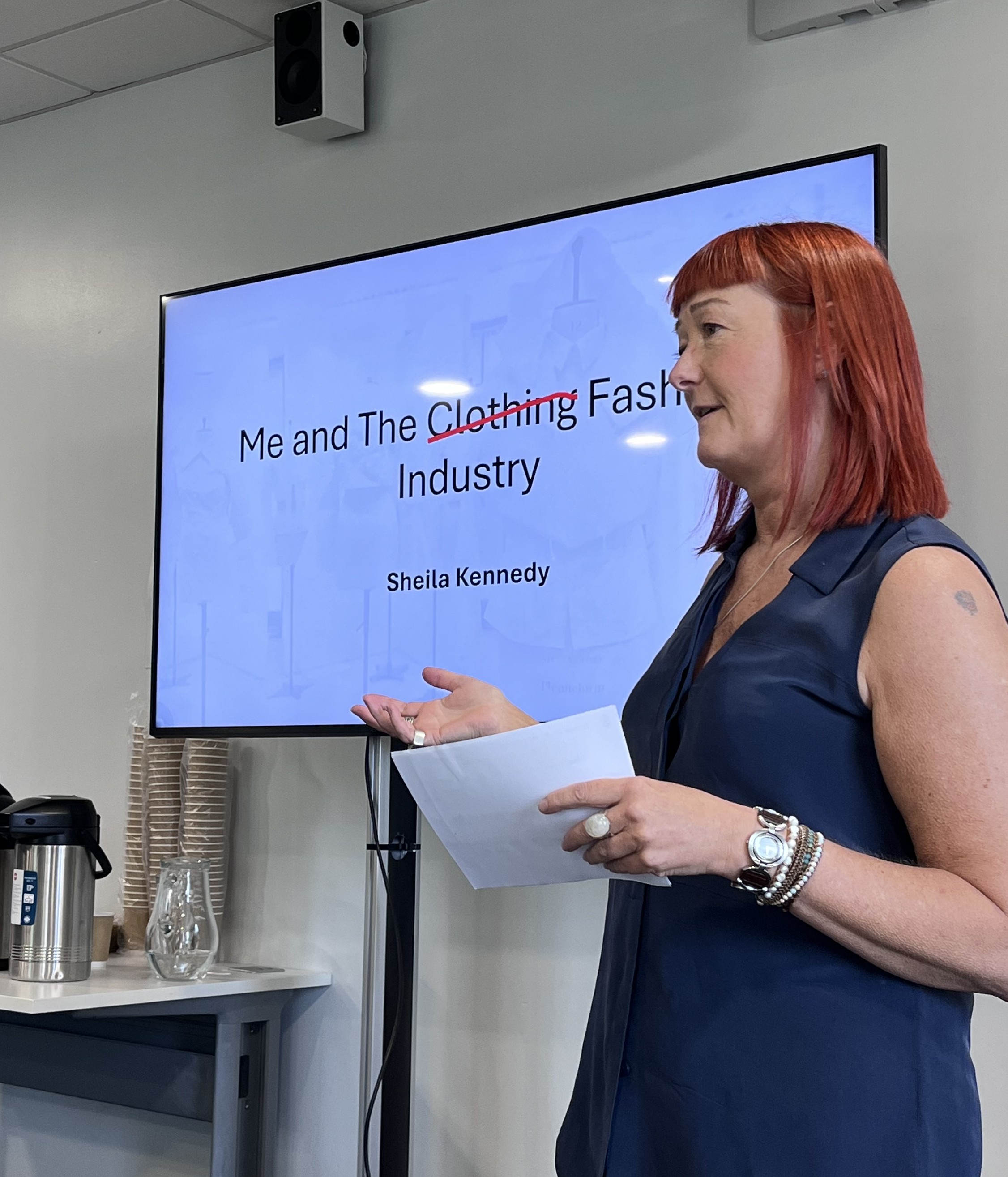With decades of experience in global fashion manufacturing, Sheila Kennedy brings a sharp eye for quality, a strategic mindset, and a passion for solving problems. We sat down with Sheila to learn more about her journey, her transferable skills, her approach, and what she hopes to bring to Greater Manchester’s manufacturing businesses.

Tell us a bit about your background. How did you get started in manufacturing?
I studied Clothing Management at university — it was very hands-on: work study, line balancing, pattern cutting, industrial sewing. My first roles were in high street fashion in London, working in garment technology and quality control. From there, I moved into UK production management, sourcing, costing, and quality — mostly working with both large and small factories across the UK.
Eventually, I started travelling offshore, and that opened up a whole new world. I’ve worked with manufacturers in China, Bangladesh, Vietnam, Morocco, India, and many more. I’ve always loved being in factories — seeing how things work, meeting people, and figuring out how to make things better.
You’ve spent many years in fashion manufacturing — can you tell us about a project that showcases your approach?
One that stands out is my time helping transform a startup division within a larger organisation. When I joined, the team was struggling — KPIs weren’t being met, quality was inconsistent, and delivery dates were slipping. The team had potential but lacked structure and process.
I started by mapping the entire product value chain — from concept to delivery — to identify inefficiencies, bottlenecks, and areas where communication was breaking down. We uncovered communication gaps, unclear roles, and inconsistent quality control.
To address this, I introduced new processes for product engineering, costing, and raw material sourcing. We implemented clearer approval standards, streamlined supplier communications, and built a more sustainable supply base. I also worked closely with the team to clarify roles and responsibilities, so everyone understood their priorities and how their work contributed to the bigger picture.
The results were significant:

![]()
We achieved 95% on-time delivery, improved product margins, and saw a 24% increase in sales. But more than that, we created a culture of accountability and collaboration. It was a full transformation — and incredibly rewarding to see the team grow in confidence and capability.
Sheila Kennedy
You’ve worked extensively in Asia. What’s your view on exporting and global supply chains?
Exporting is essential if you want to grow. The UK market is limited, and there’s so much opportunity overseas — but it comes with challenges. Compliance, cultural differences, product standards — they all vary.
I supported a heritage brand in expanding into Asia, and one of the biggest hurdles was understanding local regulations. We created a product manual, built a new compliance department, and improved communication across the board. It’s all about doing your homework, building relationships, and being proactive.
Of course, exporting isn’t just about logistics and regulations — it’s also about values. Increasingly, sustainability and social responsibility are becoming non-negotiable requirements — not only from overseas customers and markets, but also within the UK. Choosing the right manufacturing partners abroad means ensuring they meet ethical standards, environmental expectations, and compliance frameworks. These are essential for long-term success and reputation.
Sustainability and social responsibility are two big issues faced by manufacturers — how do you approach that?
It’s a huge part of manufacturing now, and rightly so. I’ve implemented social responsibility audits, worked with ethical trading standards, and managed compliance for everything from children’s clothing to PPE.
But it’s not just about ticking boxes. When I visit a factory, I look at everything — how people are treated, how open the managers are, how the workers behave. You can tell a lot from the atmosphere. I also believe in continuous improvement — not just auditing once a year but building long-term partnerships that raise standards.
Why did you decide to become a Manufacturing Advisor at the Business Growth Hub?
I’ve done a few fixed-term roles recently, and I realised I love the variety — going into different businesses, meeting new people, solving problems. I’m curious by nature, and I enjoy helping others succeed.
This role gives me the chance to use everything I’ve learned — from product strategy and compliance to supply chain and sustainability — and apply it to support manufacturers here in Greater Manchester. It’s a great fit.
What do you think local manufacturers need to prepare for in the coming years?
Costs are rising, supply chains are more fragile, and sustainability is becoming non-negotiable. Businesses need to be more agile, more informed, and more strategic.
That means reviewing your supply chain, understanding your customer, and being ready to adapt. It’s not just about surviving — it’s about building resilience and finding new opportunities.
If you're ready to begin your own journey toward continuous improvement, leave your details below, and a Manufacturing Advisor will be in touch to help streamline operations, reduce waste, and boost efficiency. You could also sign up for one of our Manufacturing workshops here.